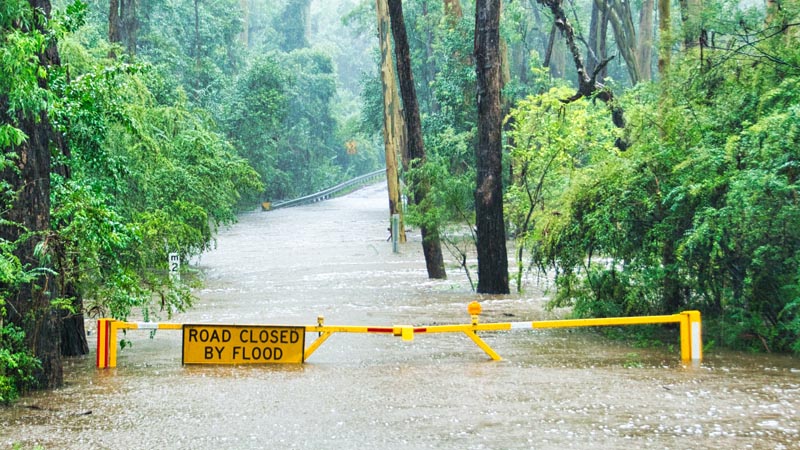What mental health professionals can learn from the fallout of disasters
MDlinx Dec 03, 2022
Between water crises, cyclones, earthquakes, and other disasters, individuals across the globe deal with the ongoing threat of potentially catastrophic events. Disasters are, as researchers publishing in the Journal of Family Medicine & Primary Care wrote, “an inevitable truth of our life.”
Makwana N. Disaster and its impact on mental health: A narrative review. J Family Med Prim Care. 2019;8(10):3090.

So, when disaster does strike, what does the aftermath entail?
Studies show that patients who survive disasters often experience psychological distress or develop mental illnesses as a result. To help prevent further psychological harm in such patients, mental health clinicians should intervene soon after a disaster occurs, according to research published by Frontiers in Psychiatry.
Medved S, Imširagić AS, Salopek I, et al. Case series: Managing severe mental illness in disaster situation: The Croatian experience after 2020 earthquake. Front Psychiatry. 2022;12:795661.
When disaster strikes, mental health suffers
Disasters come in many shapes and sizes yet tend to have similar effects on those who live through them.
According to the study published by Journal of Family Medicine and Primary Care, disasters of all kinds have negative impacts on the mental health and well-being of individuals every year.
Aside from the social and economic losses associated with disasters, those who endure catastrophes may develop symptoms of PTSD, depression, and anxiety, among other psychiatric disorders.
In addition, more vulnerable populations are often subject to the harsher psychological effects of disasters.
The Flint water crisis
An example of a community dealing with persistent mental health challenges as a result of a disaster is the people of Flint, MI.
A 2022 study published by JAMA Network Open looked at the long-term psychiatric outcomes for 1,970 adults who lived through the water crisis in Flint that started in 2014.
Reuben A, Moreland A, Abdalla SM, et al. Prevalence of depression and posttraumatic stress disorder in Flint, Michigan, 5 years after the onset of the water crisis. JAMA Network Open. 2022;5(9):e2232556.
Preceding the crisis was the decision to switch Flint’s water supply from Lake Huron and the Detroit River to the Flint River, a corrosive body of water that went without proper treatment prior to reaching residents’ homes.
The result: The communities living in Flint were routinely exposed to dangerous levels of lead, iron, and bacteria in their water.
The JAMA Network Open researchers found that more than 20% of study participants met the criteria for presumptive past-year depression. Almost 25% qualified for past-year presumptive PTSD. And more than one-tenth of participants met the criteria for both disorders at the 5-year post-water-crisis mark.
Only 34.8% of participants were offered the opportunity to address water-crisis-related psychiatric symptoms with the help of mental health services. Of the 685 respondents who received the offer, the majority (79.3%) took it.
This study shines a light on the fact that the Flint community may require additional mental health resources to effectively address the psychiatric harms caused by the water crisis.
The Journal of Family Medicine and Primary Care research showed that disasters—whether driven by environmental factors, politics, or both—may have a lasting negative impact on the long-term mental health of those who experience them.
Early intervention is key
Let’s say a patient has lived through an earthquake.
According to the case study published by Frontiers in Psychiatry, prior research showed that those who endure the severe trauma of an earthquake may develop PTSD, anxiety, and other psychiatric disorders—much like patients who endure other types of disasters.
What can clinicians do to mitigate symptoms associated with these disorders in patients? The Frontiers in Psychiatry researchers recommended early intervention.
Early intervention after trauma reduces acute stress and prevents psychological disturbances and, consequently, stress-related somatic symptoms.
Mental health clinicians who can start treatment soon after a patient endures an earthquake may not only help prevent further psychological side effects, but also cardiovascular, pulmonary, and gastric issues.
The efficacy of immediate post-earthquake mental health outreach programs has been noted in countries like Armenia, China, and Japan, whose residents have reaped significant mental health benefits as a result, according to Frontiers in Psychiatry.
While treatments may vary, mental health clinicians can at least move forward with the knowledge that when it comes to treating patients who’ve endured disaster, timing is crucial.
What this means for you
Individuals who live through earthquakes, water crises, floods, and other disasters often suffer from psychological distress after the event. Patients are subject to symptoms of anxiety, PTSD, depression, and even psychosis post-disaster. Research suggests that mental health clinicians can best serve such patients through early intervention. This may help prevent patients from experiencing further psychological disturbances and stress-related somatic symptoms.
-
Exclusive Write-ups & Webinars by KOLs
-
Daily Quiz by specialty
-
Paid Market Research Surveys
-
Case discussions, News & Journals' summaries